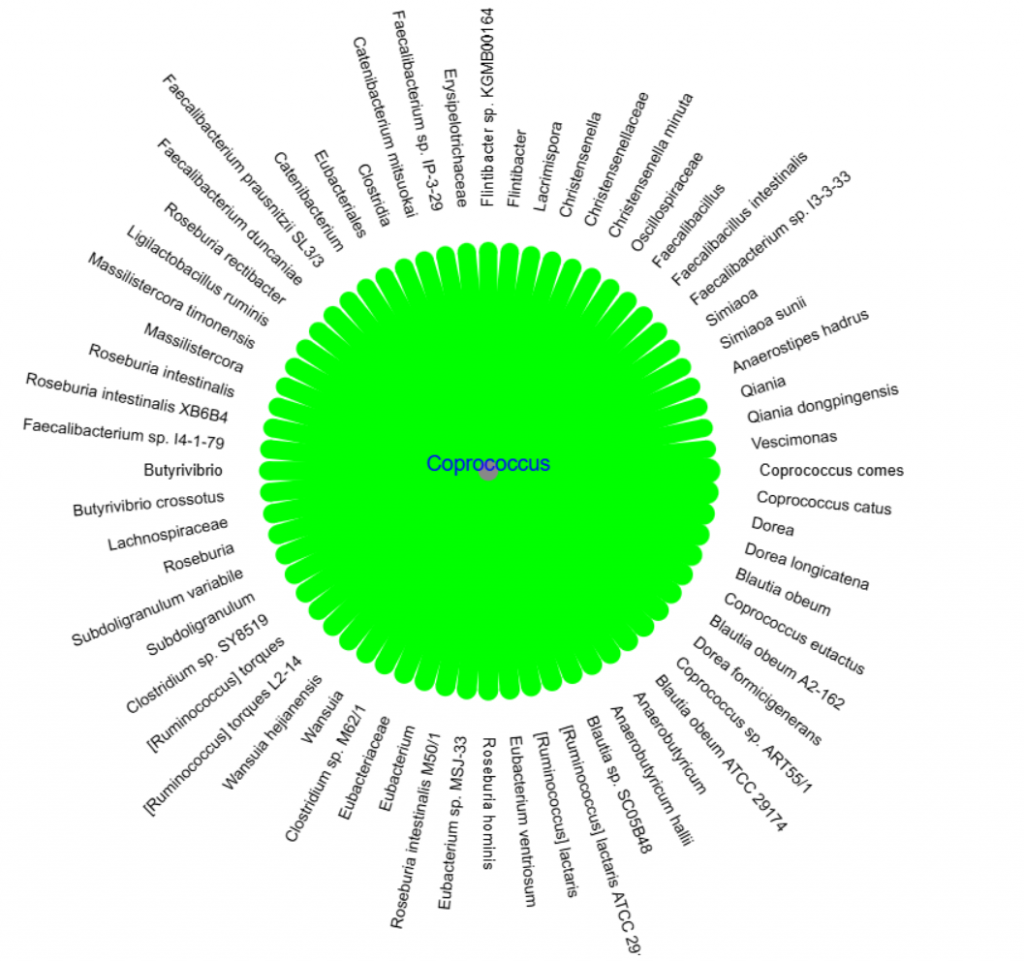This post uses this May 2025 study for selecting bacteria desired to be shifted.
Perturbations in gut microbiota in autism spectrum disorder: a systematic review [May 2025]
| Bacteria | Direction |
| Eubacteriales, Klebsiella, and Clostridium | Statistically High |
| Oscillospira, Dorea, and Collinsella | Enriched |
| Streptococcus, Akkermansia, Coprococcus, and Dialiste | Depleted |
Our approach is simple, we look up each on Microbiome Taxa R2 Site. We then look at probiotics bacteria that are associated with desired shifts.
- Too High — rarely do probiotics reduce most bacteria
- Eubacteriales [ order } – nothing found
- Klebsiella [ genus } – nothing found
- Clostridium [ genus } – nothing found
- Oscillospira – nothing found
- Dorea [ genus } – nothing found
- Collinsella [ genus } – nothing found
- Too Low
What is Microbiome Taxa R2 Site
It based on associations determined from 1000 healthy individuals using shotgun analysis,

This is followed by a table of the bacteria associations. This table has probiotics identified (including several that are pending).

Bottom Line
Looking on the impact, the following three probiotics would be my top choice:
- Enterococcus faecium – Source
- Lactococcus cremoris – Source
- Akkermansia muciniphila – Source or Source
Why not just use studies? There is nothing wrong with using studies. Pages listing studies result are linked to from each of the above pages. The difference is that with this approach you get the relative impact (R2) between probiotics which is not available from the studies. Also, some probiotics have very few studies, i.e. Lactococcus cremoris. Using both published studies and this tool gives the maximum coverage.